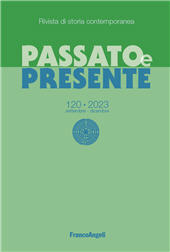Il mito di Spartaco in Italia, tra democrazia risorgimentale e socialismo (con qualche riflessione su Tito Vezio)
79-98 p.
The article analyses the evolution of the Spartacus myth through the artistic and literary production of Risorgimento and post-unification Italy. While before 1848 the figure of Spartacus had only been the subject of sporadic references, in the year of the "Springtime of the peoples" the rebellious slave became a powerful symbol of the anti-Austrian revolt. Later, the spread of anarcho-socialist ideologies transformed the liberator of the nationalities into the liberator of the people: the chains to be broken were now those of class submission. It was on this level that Spartacus's fortunes were matched by those of the young Roman patrician Tito Vezio, the protagonist of a widely successful historical novel that recounted his heroic, yet tragic, story as a fighter against the iniquitous institution of slavery. [Publisher's text].
-
Artikel aus derselben Ausgabe (einzeln erhältlich)
-
Informationen
ISSN: 1972-5493
KEYWORDS
- Spartaco, Tito Vezio, myth of Rome, International Workers' Association, socialist culture Parole chiave: Spartaco, Tito Vezio, mito di Roma, Associazione internazionale di lavoratori, cultura socialista


